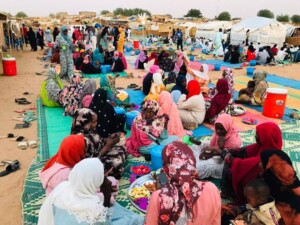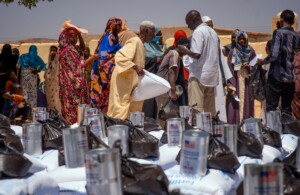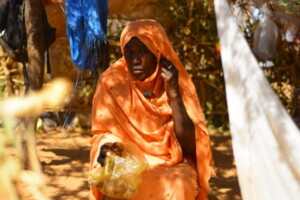Death toll in Sudan floods rises to 78
Sudan’s Deputy Commissioner for Humanitarian Aid, Ahmed Fadlallah reported new figures on the size of damage and losses due to rain and floods in the country on Friday. The death toll has risen to 78.
 Wad Ramli in northern Khartoum flooded (Social Media)
Wad Ramli in northern Khartoum flooded (Social Media)
Sudan’s Deputy Commissioner for Humanitarian Aid, Ahmed Fadlallah reported new figures on the size of damage and losses due to rain and floods in the country on Friday. The death toll has risen to 78.
In total 89 people were injured. The number of families affected is 65,322; 40,800 homes collapsed totally; 24,444 homes collapsed partially; 184 schools were affected; and 4,707 animals drowned.
67 localities
In total 67 localities are affected in 14 states. Most damage was reported in White Nile state, Kassala, El Gedaref, Khartoum, El Gezira, Sennar, and Red Sea state.
On Friday morning, the first of eight aircraft from Kuwait arrived in Khartoum, carrying 40 tons of relief goods for those affected by floods and rains in Sudan.
Fadlallah said the flight delivered 5,000 blankets, 200,000 boxes with a variety of food, and personal hygiene kits.
‘Disaster zone’
As reported by Radio Dabanga last week, the Forces for Freedom and Change (FFC) have demanded that the government declare Sudan a natural disaster zone following widespread destruction from heavy rains and flash floods over the past months.
They appealed to international, regional, and local voluntary organisations to assist those affected in the affected areas.

Relief response
Deputy Commissioner Fadlallah’s figures confirm those in an update last week by the UN Office for the Coordination of Humanitarian Affairs (OCHA), that White Nile, Khartoum, and Kassala are the states most affected by flooding.
OCHA says that the risk of water-borne disease outbreaks is high—mainly due to the presence of stagnant water in many flood-affected areas.
According to the update, Sudan’s Humanitarian Aid Commission (HAC) is leading the Floods Task Force which is coordinating and facilitating flood response efforts across the country.
The majority of needs include emergency shelter and non-food items, water, sanitation and hygiene, food and agricultural aid, health, and vector control.
Our editorial independence means that we can continue to provide factual updates about political developments to Sudanese and international actors, educate people about how to avoid outbreaks of infectious diseases, and provide a window to the world for those in all corners of Sudan. Support Radio Dabanga for as little as €2.50, the equivalent of a cup of coffee.












 and then
and then